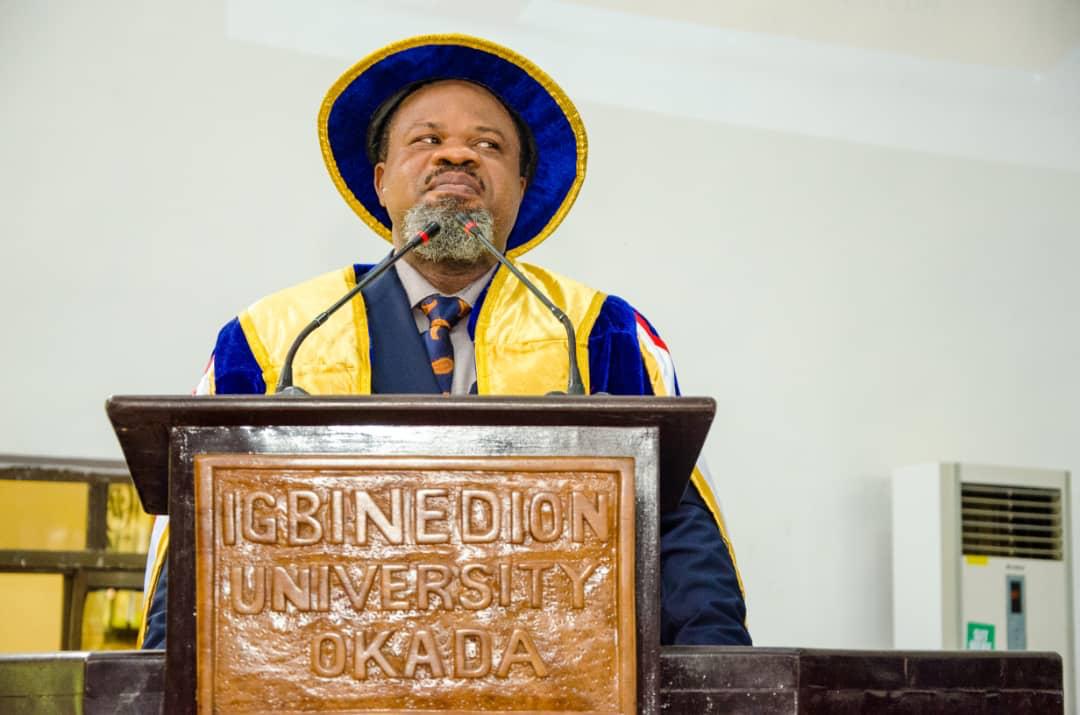



Journalists Must Guide Against Propagating Fake News- NUJ President
The National President, Nigeria Union of Journalists (NUJ), Chief Chris Isiguzo, has charged Journalists in the country to guide against propagating fake news.
He said proper and adequate checks must be ensured before stories are written and transmitted for public consumption.
Isiguzo who is also the president of Congress of African Journalists (CAJ) gave the charge at the Lecture Series of Dr. Goodluck Ebele Jonathan College of Arts and Social Sciences, Igbinedion University, Okada, Edo State, on Tuesday, with the theme: “Rethinking The Social Media: Fake News and The Death of The Gatekeeper” as Guest Speaker.
He said: “This is the only way we can help sustain our democracy. Distracting leaders from acts of governance through frivolities and malicious deployment of fake news, hate speeches will not augur well for the country.
“We should always remember that while the gatekeeper on social media platforms has died or never even existed, the gatekeeper in the traditional media lives on.”
According to him, “Unlike traditional journalism, social media is a bottom-up, emergent phenomenon in which there is little or no editorial oversight or formal journalistic workflow. It does not require training or professionalism. It is therefore my contention that in an attempt to discuss this topic, adequate consideration should be given to the traditional media.
“This becomes more pertinent because of my professional calling which today faces threats from the misuse of the social media.”
Making comparison between traditional and social media, Isiguzo said: “The major area of competition between the two is in the area of who gets it first. The issue of which of them breaks the news first is a very clear area of interest for both. Similarly, in terms of revenue drive, the two seem to be engaged in a competition for the market.
“Now traditional media is trying to keep pace with breaking news and ensuring that its readership and viewership are abreast of the news all the time by incorporating social media into their platforms.
“Many traditional media now allow citizens to report events happening in their area just like many citizens use social media to announce events and breaking news.
“Perhaps one of the most significant benefits offered by social media is the ability to complement traditional media efforts. With the use of social networking sites, you can redistribute and promote your business’ advertisements, as well as any other media content, including newspaper articles, online interviews and television appearances.”
He allayed fears of abuse of the might of the pen by journalists disclosing that in the desire to checkmate abuse the Nigeria Press Organisation (NPO) set up the National Media Complaints Commission(NMCC) which has the responsibility of redressing public complaints of infractions by any newspaper outfit.
In his opening remarks, the Vice Chancellor, Igbinedion University Okada (IUO) Prof Lawrence Ezemonye acknowledged the role of the traditional media in promoting an egalitarian society devoid of fake news and other social media misinformation, adding that the media contributions to nation building cannot be over emphasized.
Professor Ezemonye who described the topic “Rethinking the social media: Fake News and the Death of the Gatekeeper “, as not only thought-provoking but apt, maintaining that,”Fake news is one of the negative offshoots of development.”
According to him, “As we move from the dominance of traditional media to the era of new media and the social media with the attendant ‘backgrounding’ of the Gatekeeper and proliferation of fake news, Igbinedion University is proud to be at the forefront of providing intellectual platforms to discuss these issues.”
Earlier, in her welcome address, the acting Dean of the college, Dr. Blessing Oligbi, said that the theme of the lecture “can hardly be more germaine. Based on our recent experience as a nation, the task of filtering news to determine what constitutes the truth is very critical not just to our knowledge industry, but to the very survival of our nation.”